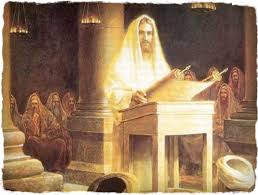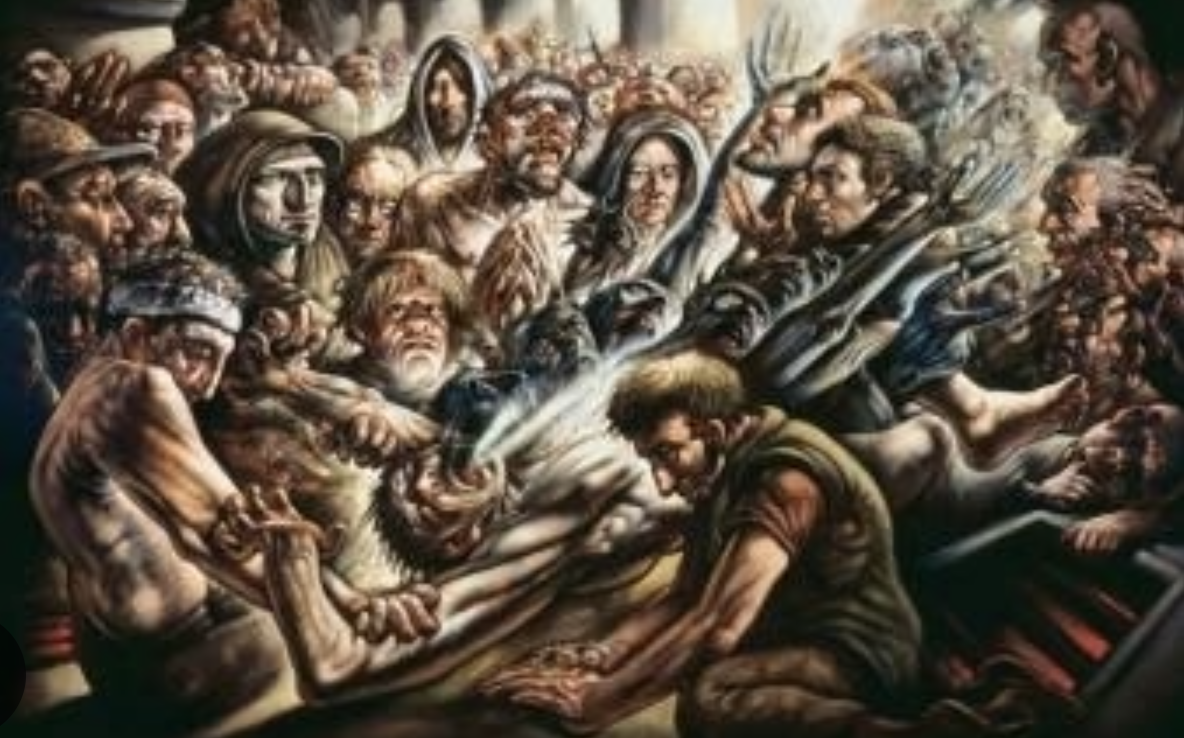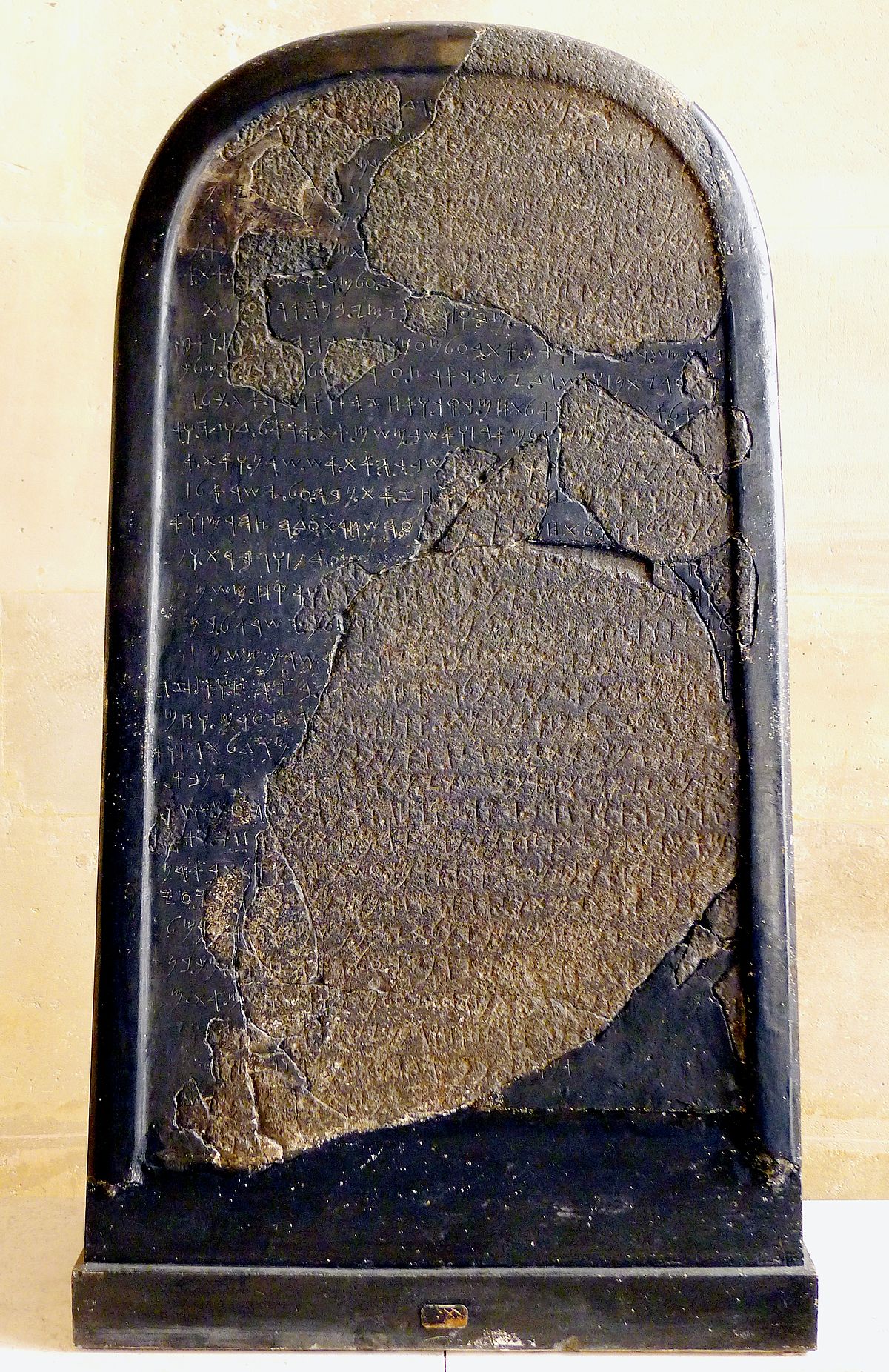

I have reached out .... to a rebellious people ....
Who sit among the graves,
And spend the night in the tombs;
Who eat swine's flesh,
And the broth of abominable things is in their vessels;
Who say, 'Keep to yourself,
Do not come near me,
For I am holier than you!' ....
But you are those who forsake the Lord,
Who forget My holy mountain,
Who prepare a table for Gad ...."
(Isa 65:2-10)
In the Name of the Father and of the Son and of the Holy Ghost.
How could anyone claim to understand Jesus' visitation to the Gadarenes, recorded in all three Synoptic Gospels, without first reckoning with this oracle from Isaiah?
The preeminence of the Book of Isaiah in Holy Scripture need scarcely be mentioned. Among the thousands of distinct documents stored in the caves of Qumran, only the Isaiah Scroll survived intact, most jealously guarded and carefully preserved.
Christians today continue to venerate Isaiah's oracles as being most holy:
|
Therefore the Lord Himself will give you a sign: Behold, the virgin shall conceive
and bear a Son, and shall call His name Immanuel. (Isa 7:14) |
and
|
For unto us a Child is born,
Unto us a Son is given; And the government will be upon His shoulder. And His name will be called Wonderful, Counselor, Mighty God, Everlasting Father, Prince of Peace. Of the increase of His government and peace There will be no end, Upon the throne of David and over His kingdom, To order it and establish it with judgment and justice From that time forward, even forever. The zeal of the Lord of hosts will perform this. (Isa 9:6-7) |
In the New Testment, St. Luke writes,
|
.... as it is written in the book of the words of Isaiah the prophet, saying:
"The voice of one crying in the wilderness: 'Prepare the way of the Lord; Make His paths straight ....'" (Lu 3:4) |
St. Matthew uses the formula throughout his Gospel, "that it might be fulfilled which was spoken by the Prophet Isaiah ...." St. John attests Isaiah repeatedly. And Jesus Himself singles out Isaiah as the Prophet who has revealed God's Son to the world:

|
And He was handed the book of the prophet Isaiah.
And when He had opened the book, He found the place where it was written: "The Spirit of the Lord is upon Me, Because He has anointed Me To preach the gospel to the poor; He has sent Me to heal the brokenhearted, To proclaim liberty to the captives And recovery of sight to the blind, To set at liberty those who are oppressed; To proclaim the acceptable year of the Lord." Then He closed the book, and gave it back to the attendant and sat down. And the eyes of all who were in the synagogue were fixed on Him. And He began to say to them, "Today this Scripture is fulfilled in your hearing." So all bore witness to Him, and marveled .... (Lu 4:18-21) |
We continue to marvel. feeling God's power sweeping over us as we hear the words of the Prophet set to Handel's oratorio:
Yes, we affirm the oracles of Isaiah to be incommensurably holy. But what is this unique book as it was written in its historical setting? Its primary context is the Babylonian conquest over Judah, the Exile of the Judean elite, and the Return of that much-changed elite to Judea. They spoke Babylonian (Aramaic). They practiced a new religion grafted upon the ancient Hebrew Bible. Indeed, the Ezra tradition depicts a complete revision of the Hebrew Scriptures as being part of the story of the Return. They had experienced a Second Exodus, Ezra proclaimed, and those who did not participate could not rightly be called "the people of God."
Small wonder that he attempts to break apart all the families that had formed over the previous two generations. Among whom? Among the Hebrews.
By the time of Jesus, the Hebrew peoples beyond Judah's borders understood the Return to be about unfaithfulness versus their faithfulness to the Fathers, about apostasy versus their own godly customs and life, and, following the Advent of Jesus, about the Kingdom of Heaven versus the way of the Gentiles.
Chief among these abominable rituals was blood sacrifice — the belief that relationship with God is not the subject, but rather a quid-pro-quo offering of slaughtered animals to placate the deity.
In the final oracle of Isaiah, we find God's response to these rituals:
![]() Thus says the Lord:
Thus says the Lord:
|
"Heaven is My throne,
And earth is My footstool. Where is the house that you will build Me? And where is the place of My rest? For all those things My hand has made, And all those things exist," Says the Lord. "But on this one will I look: On him who is poor and of a contrite spirit, And who trembles at My word. "He who kills a bull is as if he slays a man; He who sacrifices a lamb, as if he breaks a dog's neck; He who offers a grain offering, as if he offers swine's blood; He who burns incense, as if he blesses an idol. Just as they have chosen their own ways, And their soul delights in their abominations, So will I choose their delusions, And bring their fears on them; Because, when I called, no one answered, When I spoke they did not hear; But they did evil before My eyes, And chose that in which I do not delight." (Isa 66:1-4) |
Here, God repudiates the Temple — "Where is the house that you will build for me since the earth is My footstool and nothing was made that was not made by Him." We hear these words echoed in the opening lines of St. John's Prologue.
Without question the Temple was built by pagans, financed from King Cyrus' treasury. And its central cult was blood sacrifice to the deity, as was done in Babylon and Persia.
God's Son scoffed at these rituals in His Parable of the Good Samaritan, and He expelled men selling sacrificial animals from the Temple in riotous demonstration.
As I say, this is the context for the Great Scroll of Isaiah, what it is about: the emergence of God-with-us, born of a Virgin, Whose Kingdom shall have no end .... in the midst of the general apostasy that would be called Judah-ism.
This hybrid religion continued down its controverted path for centuries amongst a Hebrew people who were committed to many divergent beliefs.
People today do not realize that the Essenes were as numerous as the Pharisees and scattered throughout the Levant, gathered as families. They refused to participate in this abominable sacrifices but instead approached the Temple offering the sacrifice of a contrite heart and transformed mind. These were commonplaces of Jesus' lifeworld.
For while one-third among the Judeans were take to Babylon, two-thirds were not. And none of the people beyond Judah had participated in this cultural transformation. It would be the century immediately preceding the Lord's Nativity when Judah-ism would experience real ascendancy over the people — a period that saw the destruction of the ancient Hebrew Temple on Mt. Gerizim ("We worshipped on this mountain," St. Photini says.) and a proliferation of Jewish synagogues built throughout the Levant and beyond indoctrinating the people.
The reason Jesus gives for the Advent of God is that a shepherd be sent to gather the Lost Sheep of the House of Israel:
| But He answered and said, "I was not sent except to the lost sheep of the house of Israel." (Mt 15:24) |
And, by the lights of the Hebrew thoughtworld, no lost tribe was more lost than Gad. From the beginning Gad was seen by the other Tribes as being the outlier. Gad was marked by his birth as an outsider. He was not born of Rachel or Leah but rather, like Ishmael, the son of a slave. The allotment his tribe would receive would likewise be an outsider's legacy .... in the Transjordan wilderness!
Gad's name reflects this fringe identity, for Gad is the pagan god of fortune, whose name during the Roman period would be Fortuna, worshipped by pagans seeking worldly prosperity. You know, during the period it was considered "good luck" to stick the name Gad into the syllables of a child's name .... among the ungodly. Yet was he numbered among the people of God, a tribe of the House of Israel.
When the United Monarchy split in 930 B.C., the Tribe of Gad attempted to unite with the Kingdom of Israel but manifestly was rejected for they later sought alliance with the Kingdom of Judah. But Judah did not protect them when they fell to to Neo-Assyrian Empire around 720 B.C. The Prophet Jeremiah depicts Gad as being foremost among the lost tribes — for not only were they exiled but their lands were re-conquered by Ammonites never again to be reclaimed.

Scholars depict Gadarenes as having been nomadic herders,
a shadowy, unstable people,
whose boundaries kept shifting.
Following
the
Neo-Assyrian conquest,
no member of the Tribe of Gad is ever heard from again.
Gad is not
included in the roll call of tribes in Chronicles (2 Chron 27),
nor
is it mentioned in the Song of Deborah (Judges 5:2-31).
Remarkably,
the Moabite Stone (ninth century B.C.)
refers to the Tribe of Gad as being an ancient people
contradistinguished from the Kingdom of Israel,
who,
the stele implies,
came later.
That is,
from time immemorial Gad has been depicted
as the loner,
yet they are numbered among Twelve Tribes.
They are out, yet they are in.
To return a moment to our passage from Isaiah,
|
"I was sought by those who did not ask for Me;
I was found by those who did not seek Me. I said, 'Here I Am, here I Am,' To a nation that was not called by My name. I have stretched out My hands all day long ...." (Isa 65:1-2) |
In an earlier reflection at the Hermitage we considered that Jesus' journey to the Tribe of Gad was through a kind of "wormhole." You will recall that it followed a "shipwreck" scene in which He must command the winds and the waves. Then afterwards, upon calm waters, He and the Disciples sail unto Gad's shore — truly a journey into a "lost world."
Gad is the personification of a people God has not forgotten though their offenses against Him are many:
|
"Who walk in a way that is not good,
According to their own thoughts; A people who provoke Me to anger continually to My face .... Who eat .... .... the broth of abominable things .... in their vessels; Who say, 'Keep to yourself, Do not come near me, For I am holier than you!' .... .... when I called, you did not answer; When I spoke, you did not hear, But did evil before My eyes, And chose that in which I do not delight." (Isa 65:3-5,12) |
Here is the mission field of the Good Shepherd. Here is the God Who does not forget the one, lost sheep. He literally has stretched out His healing hand amongst the Tribe of Gad all day long. He has driven legions of demons from their midst. And He has cleansed their land of abominable things .... only to be driven out Himself, forced back to His boat. Yet their children's children might recount the day that God Himself came to their shores, saying, "Here I Am. Here I Am."
Which scene, this side of the people crying, "Crucify Him!" is more chilling as we read all Four Gospels? Which scenes haunt us more certainly than a people choosing the shadows of tombs and the chains of death over the Lord of life?
And yet are not these the very scenes we see playing out around us? Do we not see our children sketched in these pallid shades of death huddled on the edges? Anyone who knows these young people lost in the bottomless perdition of drug addiction and to its close companion, diseased sexuality, recognizes the Gadarene culture of death. Ours is the land who has drive God back from its shores, and surely we are the people who proclaim in "woke" tones,
|
"Keep to yourself,
Do not come near me, For I am holier than you!'" .... (Isa 65:6) |
.... the same woke tones that proclaim a higher place than God.
Perhaps the Zion Temple is nearer to our souls than we have imagined. For this was the place where God was transmuted (truly!), where the Holy Words were twisted beyond recognition (revised Scriptures), and where a counterfeit holiness was conceived and transmitted all over the world. All over the Roman Empire these synagogues were built transmitting the lies.
Yes, the oracles of Isaiah are the center of our own gravity. And the Advent of God continues to be the turning point of human history.
We read these holy books as being our personal history. For "nothing is new under the sun" (Eccl 1:9). And "Jesus Christ [is] the same yesterday, today, and forever" (Heb 13:8).
You know, if the Scripture are both literally true and allegorically true, then history is an allegory .... then and now. The same allegories are playing out today in our lives. Our own lives are allegories, narratives containing spiritual meanings and themes that must be teased out and discerned. As St. Paul would say, the Scriptures are God's oracles, that is, about us.
He is the God Who does not forget. He stretches out His hand all day long. And we marvel that He says to those who did not ask for Him, and to those who did not seek Him,
| "Here I Am. Here I Am." |